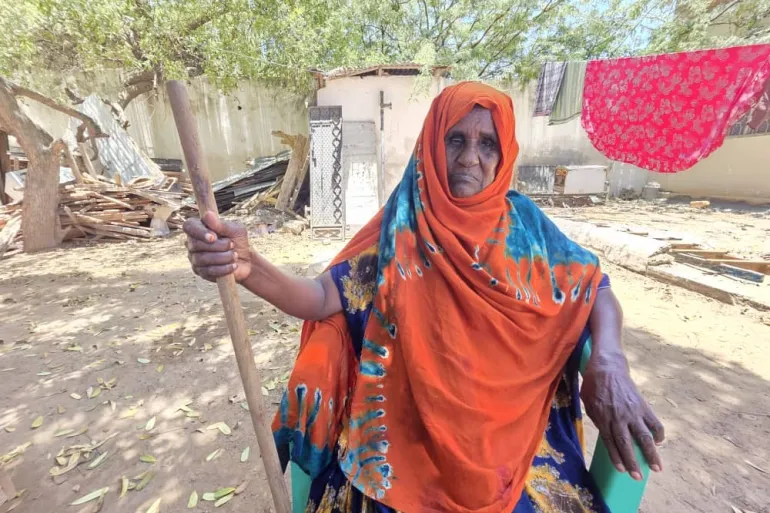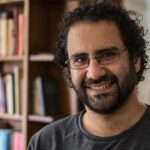In central Somalia, the story of 22-year-old Luul Dahir Mohamed and her four-year-old daughter Mariam has become a haunting symbol of the devastating impact of US drone strikes on civilians. Born into a nomadic family in Galgaduud region, Luul grew up without access to education like many girls in her Bedouin community. As a young mother raising her two children, she dreamed of a better future for them. After her marriage ended, she moved from the rural settlement of Bergan to El Buur in 2018, hoping to start a new chapter. But just months later, her life and her daughter’s were cut short in a US air raid.
On April 1, 2018, Luul and Mariam boarded a pick-up truck along with several other passengers on their way to visit her brother in Dac, about 18 kilometers from El Buur. According to eyewitnesses and her family, a US drone struck the vehicle, killing multiple passengers instantly. Survivors later found Luul’s body lying about 60 meters away from the truck, clutching her daughter, whose small body was riddled with shrapnel. Relatives say Luul had initially escaped the first strike but was deliberately targeted again as she fled with her child. Her brother, Abubakar Dahir Mohamed, told Al Jazeera that the second strike killed them both: “They knew it was a woman and child, and then they fired once again.”
The United States Africa Command (AFRICOM), which oversees US military operations on the continent, initially claimed responsibility for the strike but denied civilian deaths, insisting it had killed five “terrorists.” However, under growing pressure from rights groups, AFRICOM later admitted in a 2019 internal review that a “mother and child” had indeed been killed in the El Buur attack. Still, the victims were never officially named. This admission marked the first time AFRICOM acknowledged civilian deaths from its long-running air campaign in Somalia, which has seen more than 410 strikes since 2005.
Despite this admission, Luul’s surviving son, now 13, and her family have received no reparations. Earlier this month, rights organization Humanus revealed a letter from AFRICOM confirming that Luul and Mariam were killed but stating that a “condolence payment” was “not feasible.” For her grieving relatives, this refusal underscores what they call a shocking disregard for Somali lives. Abubakar said he tried twice to reach AFRICOM directly through its website and its newly established civilian harm reporting portal but was ignored both times. The US military later claimed it was communicating through representatives, but Humanus only began representing Luul’s family in 2023 — years after Abubakar’s desperate attempts for answers.
Rights advocates say AFRICOM’s civilian complaint system is ineffective and inaccessible to most Somalis. The reporting portal is only available in English, a language many Somali civilians do not speak, and it cannot be accessed in al-Shabab-controlled regions where internet and mobile access are heavily restricted. Eva Buzo, director of Humanus, criticized the system as “profoundly inadequate,” stressing that it routinely fails victims who have no realistic means of submitting claims. Somali analyst Abukar Arman echoed the criticism, describing the portal as “an exercise in futility” that prioritizes public relations optics over genuine accountability.
Luul’s case is not an isolated tragedy. In February 2020, another family in Jilib, southern Somalia, was struck while preparing dinner at home. AFRICOM first announced it had killed a terrorist, but a later internal review admitted the strike had killed a civilian and injured three others, including a 74-year-old grandmother who has since become blind in one eye and unable to walk. Her relatives say the attack demonstrated a blatant disregard for civilian lives.
Over the years, AFRICOM has repeatedly claimed that its strikes target al-Shabab fighters, but monitoring groups and local communities continue to report civilian casualties. The official acknowledgment of Luul and Mariam’s deaths was seen as a rare step toward transparency, yet the absence of reparations and meaningful accountability has left victims’ families feeling abandoned.
For Abubakar, who now lives in Mogadishu, the loss of his sister and niece remains a wound that has never healed. He says his family deserves not only an acknowledgment but also justice and support for Luul’s surviving son, who is growing up without his mother. “The Americans claim to uphold human rights, but when it comes to people like my sister and niece, their lives don’t matter,” he said.
As Somalia continues to grapple with the impact of foreign drone strikes, rights groups argue that Luul and Mariam’s story highlights the urgent need for accountability, reparations, and reforms to prevent future civilian deaths. For many Somali families, the struggle is not only about mourning their loved ones but also about demanding recognition of their humanity in a war where they have too often been treated as invisible casualties.














Leave a comment